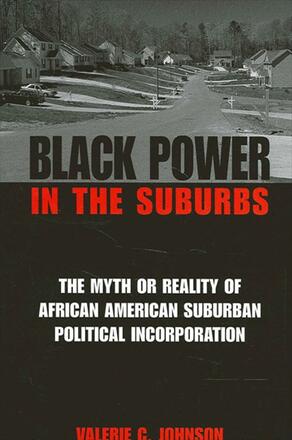
Black Power in the Suburbs
The Myth or Reality of African American Suburban Political Incorporation
Alternative formats available from:
The first comprehensive study of African American suburban political empowerment.
Description
The country's largest concentration of African American suburban affluence represents a unique laboratory to study the internal factors associated with African American political ascendancy and the convergence of race and class. Black Power in the Suburbs chronicles Prince George's County, Maryland, and the twenty-three year quest by African Americans to influence educational policy and become equal partners in the county's governing coalition. Johnson challenges conventional notions of a monolithic community by addressing the manner in which class cleavages among African Americans affect their representation and policy interests in suburbia. She also documents white resistance to power sharing and the impact of school desegregation on white population trends.
Valerie C. Johnson is Assistant Professor of Political Science at the University of Illinois, Chicago.
Reviews
"Interesting, intriguing, captivating. This is an original and important contribution to the literature on race politics, school politics, and black suburbanization. It literally cuts across the disciplines of political science, sociology, policy studies, and racial politics. Readers in each of these fields will find the book a needed reference and point of departure. Works on racial politics in suburban America simply do not exist. This is a pioneering study." — Marion Orr, author of Black Social Capital: The Politics of School Reform in Baltimore, 1986–1998
"African American suburbanization is an under researched topic in political science, American politics, public policy and black politics. Johnson provides a balanced mix of descriptive data analysis with narrative that is easy to read yet compelling. A significant contribution, especially to the sub-field of black politics." — Marilyn E. Lashley, coeditor of African Americans and the New Policy Consensus: Retreat of the Liberal State?